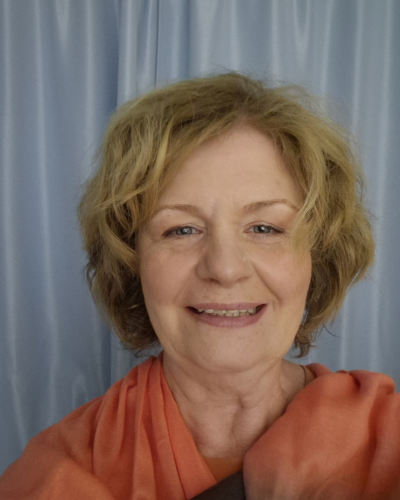Healing from emotional trauma or deep-seated pain can be an overwhelming and complex process. Many people find it hard to know where to begin. One approach that has gained attention is the power of focusing on a single, impactful memory. By revisiting a pivotal moment — whether it’s a painful experience or one filled with joy — you can unlock new insights into your emotional state and begin your healing journey with more clarity.
This blog will explore how focusing on just one memory can create emotional breakthroughs, offering practical steps to help you harness the power of this technique.
Understanding the Significance of Focused Memory Reflection
When you revisit a single memory with intention, you aren’t just recalling a moment in time — you’re peeling back layers of emotion, meaning, and personal history. Focused memory reflection can help you uncover hidden emotional triggers or strengths that you might not be consciously aware of.
Whether it’s a memory of loss, triumph, or transformation, focusing on one moment allows you to distill key life lessons and gain deeper self-awareness. Through this process, you can begin to see how this memory has shaped who you are today.
You might discover that certain habits or emotional responses stem from this memory, allowing you to better understand your behaviour and thought patterns. By gaining this insight, you’ll be more equipped to address any lingering emotional challenges and work towards healing.
Key Benefits of Focusing on a Single Memory
Focusing on one significant memory can bring clarity and focus to your healing process. Rather than feeling overwhelmed by numerous past events, concentrating on a single memory allows you to direct your energy toward a specific emotional issue. This targeted focus can provide the clarity needed to understand the roots of certain feelings or behaviours that may have previously seemed elusive.
Engaging with one powerful memory also enables deeper emotional processing. Whether the memory is tied to joy, sorrow, or anger, focusing on it helps you engage with the associated emotions more fully. This can lead to emotional release and resolution, clearing the way for you to move forward with your healing journey.
Another benefit is the heightened self-awareness that comes from revisiting a key memory. By examining how this moment has shaped your thoughts, behaviours, and emotional responses, you gain insight into patterns that may still affect your life today. This self-awareness is crucial for understanding not just your past, but how you navigate the present and future.
Finally, reflecting on one memory can fuel personal growth. Whether it’s discovering newfound resilience, recognising strengths you didn’t know you had, or realising how past challenges prepared you for future success, focusing on a single moment can provide the lessons needed for ongoing emotional development.
How Focusing on One Memory Can Lead to Emotional Breakthroughs
Focusing on one memory can be a catalyst for emotional breakthroughs because it provides an opportunity to confront, process, and resolve emotions tied to a specific moment in your life. Often, memories that hold significant emotional weight are stored in our minds without being fully processed. These unprocessed emotions can manifest in various ways — such as anxiety, fear, or avoidance behaviours — and continue to influence our daily lives.
Emotional breakthroughs occur when you allow yourself to deeply engage with the emotions surrounding a memory. For example, a memory of loss might initially bring up feelings of sadness and grief, but upon deeper reflection, it could also reveal resilience, personal strength, or a sense of closure that you didn’t realise was there. By focusing on one memory, you’re able to draw out the lessons, strengths, and growth hidden beneath the initial emotional reaction.
In addition, focusing on a single memory often triggers related memories, emotions, or insights that can further deepen your understanding of yourself. For instance, while reflecting on a memory of betrayal in a friendship, you might recall other times in your life when trust was broken, helping you to identify patterns in your relationships. This interconnected awareness often leads to a greater emotional breakthrough, as you begin to see how one memory fits into the larger puzzle of your emotional life.
Practical Steps for Utilising a Single Memory in Your Healing Journey
To effectively harness the power of a single memory in your healing process, consider these practical steps:
1. Select a Memory with a Significant Impact:
The first step is to choose a memory that holds considerable emotional weight for you. This could be a moment of intense joy, sorrow, or transformation that has significantly shaped your emotional landscape. For example, if a memory of overcoming a major life challenge stands out, it can offer valuable insights into your resilience and coping strategies.
Suppose you faced a health crisis that required immense emotional and physical strength. Reflecting on this memory can help you see how you summoned the willpower to persevere, offering insights into how you might apply similar strength to current challenges in your life.
2. Engage in Reflective Practises:
Use techniques such as journaling, meditation, or therapy to explore the chosen memory. Reflect on its impact on your current emotions and behaviours. For instance, journal about how this memory has influenced your self-perception or discuss it with a therapist to gain deeper insights. Engaging in these practises helps you process and understand the memory’s significance in your life.
Set aside 15 minutes daily for journaling about how this memory shaped your self-perception. For instance, if it was a memory of failure, reflect on how it affects your confidence today. Or, meditate on the feelings associated with the memory, noticing how they shift and evolve over time, deepening your emotional awareness.
3. Apply Insights to Your Healing Strategy:
The next step involves taking the insights you’ve gathered from focusing on the memory and integrating them into your healing process. If the memory highlights feelings of inadequacy, for example, recognise that this is an unresolved emotional trigger that needs to be addressed. Use self-compassion techniques or positive affirmations to counter negative self-talk. Developing actionable steps to tackle these emotional wounds can contribute to significant personal growth.
If you realise that a past experience of rejection is causing you to avoid new opportunities, challenge yourself to step out of your comfort zone. Start small — apply for a new role at work, or try a new hobby. Use positive affirmations like, “I am capable and deserving of success,” to reframe your mindset.
4. Share Your Reflections:
Sharing your reflections with others, especially those you trust, can be incredibly powerful. Whether it’s with a close friend, family member, or support group, opening up about the memory allows you to gain new perspectives and emotional support. You may find that others have had similar experiences, creating a sense of solidarity and validation. Feedback from these trusted individuals can also help you see the memory from different angles, offering insights you may not have considered before.
Consider joining a support group related to your experience—such as a grief recovery group or a veterans’ mental health circle. Share your memory with the group, and be open to feedback and discussions. Hearing how others have coped with similar challenges can inspire you to take new approaches to your own healing.
5. Use the Memory as a Tool for Growth:
Focusing on a memory is not just about reflecting on the past; it’s about leveraging that memory for growth. The lessons learned from this experience can empower you to tackle future challenges with newfound confidence and resilience. Recognise the strengths that emerged from this memory—whether it’s your ability to persevere, your problem-solving skills, or your emotional intelligence. Use these strengths to navigate present-day obstacles, applying the wisdom you’ve gained to become stronger and more resilient.
If reflecting on a difficult time reveals that you are much more resourceful than you thought, use this discovery in your current life. For example, if you're facing a career challenge, tap into the resilience and resourcefulness you identified in your memory to tackle the problem head-on.
Conclusion
Focusing on a single memory can be a powerful catalyst for your healing journey. By diving deep into a moment that holds emotional significance, you unlock opportunities for profound reflection, emotional breakthroughs, and personal growth. Engaging in practises like journaling, meditation, or therapy can help you uncover new insights and weave them into your life’s narrative. Embracing the power of one meaningful memory not only fortifies your resilience but also strengthens your connection to your healing path. Every memory, whether filled with joy, sorrow, or triumph, holds the potential to elevate your emotional awareness and growth.
Ready to explore your own transformative memories? Start today by choosing one significant moment and reflecting on its impact.
FAQs
1. Can focusing on one memory alone be enough for healing, or should it be combined with other therapeutic practises?
Focusing on a single memory can provide valuable insights and breakthroughs, but it is often most effective when used in combination with other therapeutic approaches such as counseling, mindfulness practises, or emotional support from loved ones.
2. How do I choose the 'right' memory to focus on for my healing journey?
Selecting a memory with significant emotional weight is important. Consider a moment that has had a lasting impact on your emotional well-being or shaped your behaviour patterns, whether it's a positive or painful experience.
3. What if focusing on one memory becomes too emotionally overwhelming?
If revisiting a memory becomes too difficult, it's essential to take breaks and seek professional support, such as therapy. You can also pace yourself, engaging with the memory in small increments rather than diving deeply all at once.





